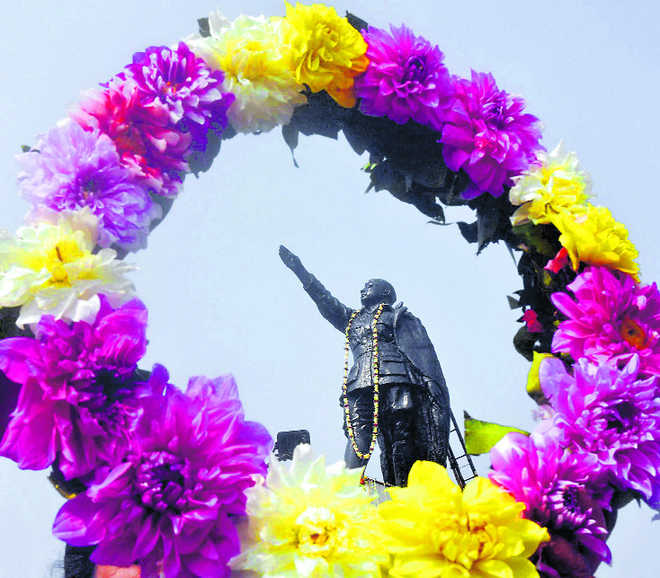M Rajivlochan
The two books under review provide some much-needed grist to the mill that is churning out fantasies about Netaji Subhas Chandra Bose. One book is by a senior journalist and the other by the granddaughter of Sarat Chandra Bose and the grand niece of Subhas Chandra Bose. Both the books are important additions to the literature on various aspects of the national movement and the complicated relationships between the prominent leaders.
Bose’s book is more academic in nature, having quotations that are longer than two pages. That makes for turgid reading but also elevates the book to being a source for future historians in search of material. Nag’s book, in contrast, avoids all paraphernalia of historical writing by merely asserting information (one person said this, another said that) without providing any details about the provenance of that information. It also lacks an index and bibliography.
Netaji went missing and left a huge mystery behind for India to solve. In the process of coming to grips with the various questions pertaining to his life and absences, the government of India tied itself up in knots. So caught up was the government in inane and anachronistic ideas of secrecy and honour that each time an opportunity came up to provide simple and straight-forward answers, the officers of the government messed up things a little further, creating opportunities for confusion and fantastic claims of Netaji being alive and in Russia or at various places in India.
Through a crisp narrative Kingshuk Nag tells us of the various strands that went into the making of the Bose mystery and the ever-complex efforts to obfuscate the search for an answer. Much of the obfuscation was the result of what might have been the efforts of British Intelligence agencies trying to spread disinformation and of the almost complete subordination of Indian intelligent agencies to their British counterparts. To add to the confusion, Nag points out, is the abysmal record-keeping abilities of the offices of the government of India, including the PMO.
Nag’s narrative introduces us to many strands that are not talked of much. The interest that Russians had in the Netaji mystery; why Netaji could not have been a British spy or a fascist; how did the British secret service have such a strong presence in the Indian spy establishment; why did the Indian spymasters feel so bereft when the English spies were asked to leave India?
It is inevitable that in such a narrative the name of Jawaharlal Nehru keeps on cropping up and a not very charitable picture of Nehru’s interest in Netaji gets painted. It also becomes clear how much we owe to the Bose family for continuing with their search for Netaji, searching for some firm evidence about him in the years after the purported air crash.
Bose’s book relies heavily on information generated by various family members. The first-hand accounts of Amiya Nath Bose provided a significant anchor to her analysis. She tells us of the manner in which decisions were being taken on the eve of Partition, various options being weighed regarding the future of India and the efforts by different people to argue in favour of one rather than another.
Those who follow the fantasy that Gandhi somehow short-changed Subhas Bose would have to change their view in light of information that Gandhi continued to be addressed by Subhas Chandra Bose as the ‘Father of the Nation’ even when Gandhi preferred Subhas Bose to not take up the post of the president of the Congress. Gandhi in turn had faith in Bose’s ability to bring around Jinnah to a compromise with the Congress. Bose’s ideas for an inclusive state and society continued to be in harmony with the ideas of Gandhi.
The idea of swaraj, though, was continuously evolving. Here we find a detailed description of how the Bose brothers talked of it and tried to come up with an idea that would overcome the flaws of other ideas that were based on communal representation. A very interesting chapter documents the effort of Sarat Bose, in May 1947, to create a Unified Bengal that was unattached to either Pakistan or India. While Nehru and Patel were opposed to the idea, Gandhi and Jinnah did consider it as a possibility for a little while.
Unlock Exclusive Insights with The Tribune Premium
Take your experience further with Premium access.
Thought-provoking Opinions, Expert Analysis, In-depth Insights and other Member Only Benefits
Already a Member? Sign In Now










